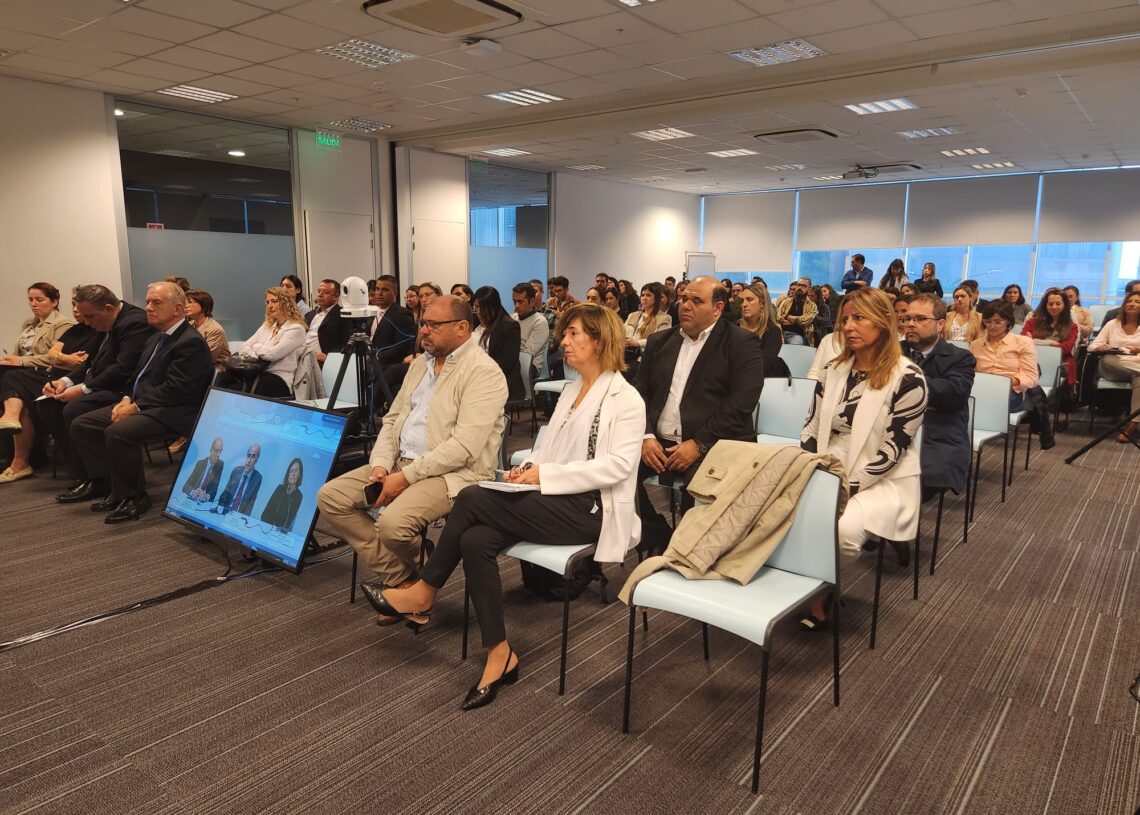COPOLAD III accompanies the Government of Uruguay in the design of National Plans to address problematic drug use in persons subject to criminal sanctions, with a gender and harm reduction perspective .The processs is in full accordance with public policies on drugs, health and penal execution, as well as with the principles of public health and human rights.
The problematic use of drugs by persons in prison and alternative measures is a constant risk factor, not only for the fulfillment of the purpose of the penal execution measures, but also for the prevention of recidivism and relapse into illicit activities.
During the working day, COPOLAD III presented the work process and methodology for the development and approach to problematic drug use in Uruguay: contributions for an inter-institutional diagnosis. As part of the conference, working tables were held for reflection and discussion on the diagnosis for addressing problematic drug use in penal execution. Spanish official Beatriz Oliva González participated in the launching of the work, sharing the experience of the “Victoria Kent” Public Social Integration Center in Madrid. The CIS in Spain are intended for inmates serving their sentence in open regime or who are in an advanced process of reintegration (art. 100.2), who are on parole or serving alternative measures to the sentence such as work for the benefit of the community.
The launching ceremony was attended by Pablo Abdalá, Undersecretary of the Interior, Daniel Radío, Secretary General of the National Drug Board of Uruguay, Peggy Martinello, Director of the Public Administration and Social Affairs Area of FIIAPP, the Spanish institution leading the COPOLAD Program, and Marta Ramírez, representing the EU Delegation in Uruguay.






